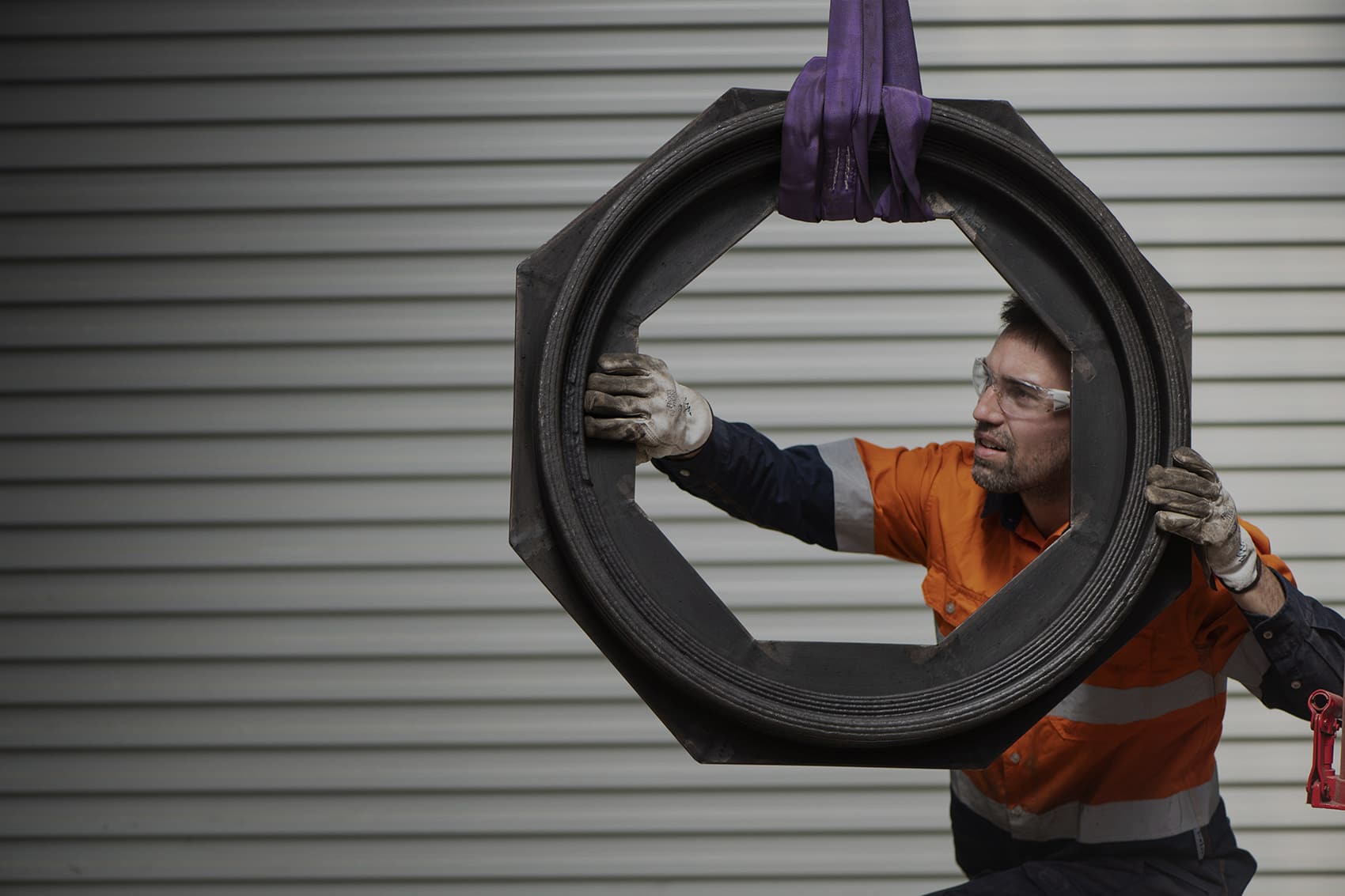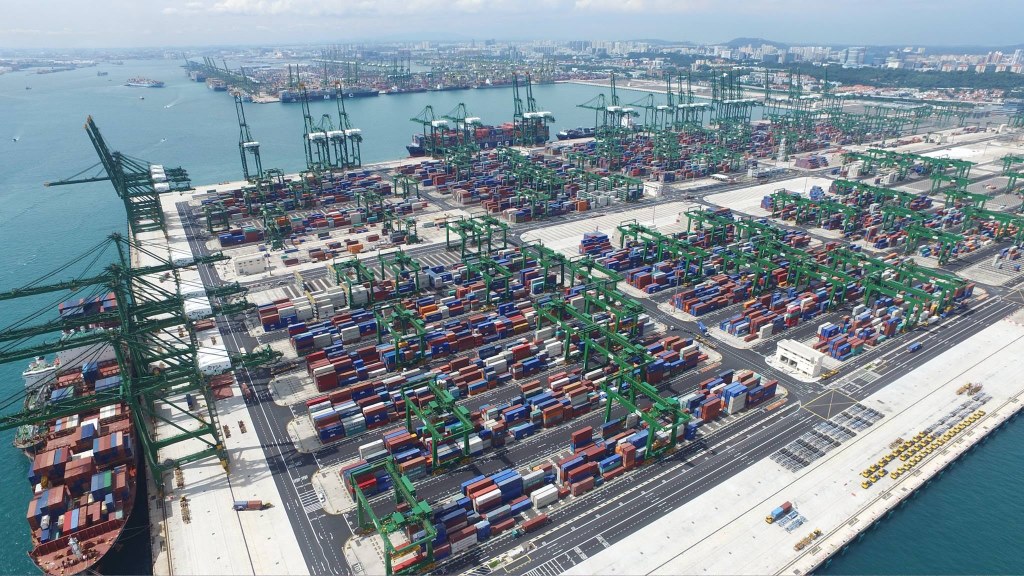Keppel Offshore & Marine (Keppel O&M), the maritime division of Singaporean conglomerate Keppel Corporation, has been certified by global independent assessment business Lloyd’s Register (LR) to produce offshore grade steel using Laser Aided Additive Manufacturing (LAAM) technology.
Partnering with Nanyang Technological University (NTU) in Singapore, and the Singapore Institute of Manufacturing Technology (SIMTech), Keppel O&M will now 3D print high-value steel components for the marine industry. Leveraging SIMTech’s LAAM technology, Keppel O&M aims to manufacture the offshore grade steel parts with faster production times, and increased economic viability. Mr Aziz Merchant, Executive Director, Keppel Marine & Deepwater Technology, comments: “This certification is the first step for us to produce high-value components essential to the offshore and marine structures.”
“Additive manufacturing or 3D printing as it is more commonly known will speed up production times which in turn can help bring projects to completion much quicker.”

Testing 3D printed parts for offshore products
Headquartered in Singapore, Keppel O&M’s activities focus on offshore rig design, construction and repair, ship repair and conversion, and specialized shipbuilding. The company serves the global offshore energy and marine sectors. Its parent company, Keppel Corporation, also has several affiliated businesses specializing in property, infrastructure and asset management.
As well as reducing project lead times, Keppel O&M and its partners sought to utilize 3D printing in order to alleviate resource constraints, reduce the carbon footprint associated with manufacturing and provide long-term cost savings. The company has been working on the project with NTU and SIMTech for over three years: “We are pleased to work with NTU and SIMTech since 2016 on developing AM technology, and the LR certification shows that the components we produce using this method are safe and fit for purpose – something that is paramount to our business,” adds Mr Merchant.
NTU researchers completed tests on over 50 offshore grade steel parts 3D printed with SIMTech’s LAAM technology. The tests comprised an analysis of their material yield, tensile, elongation, fatigue and toughness properties. Following the tests, the researchers determined that the 3D printing process and material properties met the requirements set by the American Society of Testing and Materials (ASTM) A131 specification, therefore receiving subsequent LR approval.
Initially a marine classification society, LR has established itself as a leading international provider of professional services for engineering and technology. In recent times, the company has demonstrated increased support for the growing additive manufacturing industry, providing an additively-manufactured part certification service for all verticals, from marine class-related parts to oil and gas upstream and downstream. In 2017, with The Welding Institute (TWI), it became the first organization to publish Guidance Notes on the certification of metallic parts made by additive manufacturing. At the end of 2019, the company partnered with Singapore’s National Additive Manufacturing Innovation Cluster (NAMIC), Autodesk, ST Engineering and AML3D to launch a design competition for a full-scale 3D printed rescue boat.
Mr Hussain Quraishi, Senior Consultant in LR’s Singapore Advisory Centre, stated: “It’s great to see how AM can bring such positive benefits, not only to the businesses we’re working with, but to their customers too. AM is a highly innovative technique that more and more companies are turning to in their drive to offer high-quality components for use in projects across a wide range of industries.”

Laser Aided Additive Manufacturing technology
LAAM is a CNC-based technology that uses a high energy focused laser beam for material deposition. With additional control over the heat input of the laser, the LAAM process can achieve a refined grain size and tailored microstructure, resulting in improved mechanical properties, wear and corrosion resistance. Previously it has been used to build and repair the likes of airfoil products and turbochargers. High-strength low-alloy steels, stainless steels, aluminum and titanium alloys are included in its material portfolio.
The technology has been developed at SIMTech, a research institute of the Agency for Science, Technology and Research (A*STAR), a statutory board under the Ministry of Trade and Industry of Singapore. A*STAR primarily supports R&D in areas of competitive advantage and national needs for Singapore.
SIMTech’s LAAM technology has already seen applications in the marine industry. Previously, Sembcorp Marine signed an MoU with SIMTech, quality assurance and risk management firm DNV GL, and NAMIC. Part of the agreement included the fabrication of large-scale structures for new ship vessels and component repair using the LAAM process in Singapore.

In fact, Singapore has demonstrated growing expertise in 3D printing for maritime. In 2018 the Maritime and Port Authority of Singapore (MPA) initiated a Joint Industry Program (JIP) seeking to accelerate additive manufacturing in the maritime industry.
Since then, a number of developments have taken place, including the appointment of DNV GL as a lead researcher on the JIP to collaborate with 10 Singapore Ship Association (SSA) companies and examine the cost and time effectiveness of 3D printed parts for naval vessels. Additionally, the MPA has supported an early adopter program (EAP) launched by global maritime industry group Wilhelmsen and additive manufacturing service bureau Ivaldi Group to supply 3D printed spare parts on demand to ships and other vessels in Singapore.
Subscribe to the 3D Printing Industry newsletter for the latest news in additive manufacturing. You can also stay connected by following us on Twitter and liking us on Facebook.
Looking for a career in additive manufacturing? Visit 3D Printing Jobs for a selection of roles in the industry.
Featured image shows Keppel Offshore & Marine operation. Photo via Keppel O&M.

